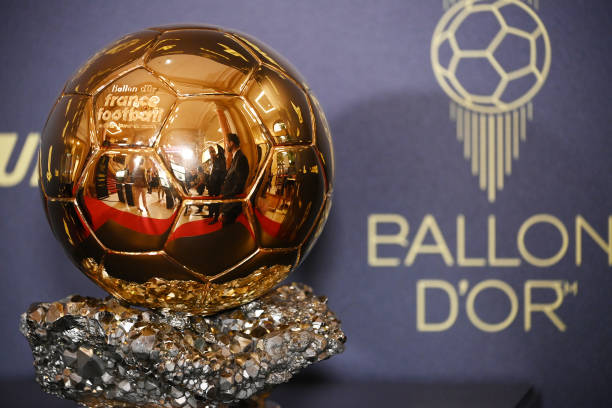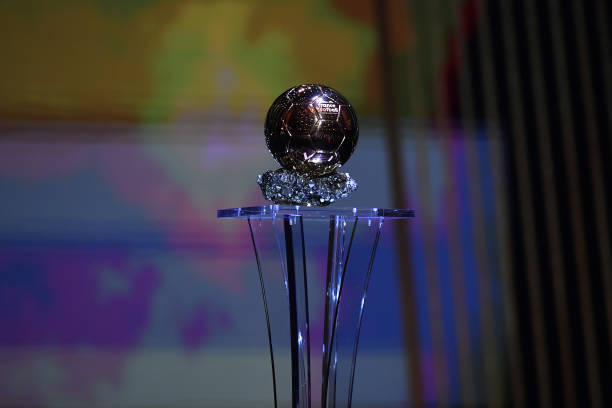The Ballon d'Or, literally translating to "Golden Ball," shimmers in the spotlight as one of football's most coveted individual accolades. This prestigious award recognizes the player deemed the best in the world over a calendar year. But what exactly is the Ballon d'Or, and how does it differ from other trophies and cups handed out in the beautiful game? Let's delve deeper and separate the "Golden Ball" from the rest of the silverware.
A History Steeped in Prestige: The Birth of the Ballon d'Or
The Ballon d'Or boasts a rich history, dating back to 1956. French football magazine France Football established the award, with a jury of journalists initially selecting the winner solely based on their performances in European competitions. Over the years, the criteria and voting process have evolved, but the core purpose remains the same – to celebrate the most outstanding footballer of the year.
The Evolving Criteria: From European Focus to Global Recognition
In the early years, the Ballon d'Or had a distinct European bias. However, as football became a truly global sport, the criteria broadened. Nationality restrictions were lifted in the 1990s, allowing players from all corners of the world to compete for the prestigious award. Today, the voting jury considers a player's overall performance throughout the calendar year, including individual brilliance, trophies won, impact on their team's success, and overall sportsmanship.
The Voters and the Voting Process: A Celebration of Expertise
The current voting process for the Ballon d'Or involves a select group of journalists, national team captains, and coaches from around the world. These individuals cast their votes based on a set criteria, ensuring a diverse and well-informed selection process. The secrecy surrounding the final votes adds to the mystique and anticipation surrounding the Ballon d'Or announcement.
Beyond the Ballon d'Or: A Landscape of Cups and Recognition
While the Ballon d'Or is the ultimate individual accolade, other prestigious awards recognize excellence in football. Here's a glimpse into some key distinctions:
- Team Trophies: Competitions like the UEFA Champions League, Premier League, Serie A, and La Liga award trophies to the team that finishes top of the league or emerges victorious in a knockout tournament. These trophies celebrate collective success and teamwork.
- Domestic Player Awards: Many leagues have their own "Player of the Year" awards, recognizing outstanding performers within a specific national championship.
- FIFA's The Best Awards: Established in 2016, The Best awards are presented by FIFA (Fédération Internationale de Football Association), the international governing body for football. Similar to the Ballon d'Or, these awards recognize the best male and female players, coaches, and goalkeepers based on voting from national team coaches and captains.
Frequently Asked Questions About the Ballon d'Or
Here are some of the most common questions people ask about the Ballon d'Or:
- Who has won the most Ballon d'Or awards? Lionel Messi holds the record for most Ballon d'Or wins with seven, followed by Cristiano Ronaldo with five.
- Can a player win the Ballon d'Or twice in a row? Yes, several players have achieved this feat, including Lionel Messi (2009 & 2010) and Cristiano Ronaldo (2015 & 2016).
- Who decides the winner of the Ballon d'Or? A jury of journalists, national team captains, and coaches cast their votes to determine the winner.
The Enduring Legacy: A Symbol of Individual Brilliance
The Ballon d'Or remains the pinnacle of individual recognition in football. Winning this prestigious award signifies a player's exceptional talent, dedication, and impact on the beautiful game. While team trophies and league titles celebrate collective success, the Ballon d'Or shines a spotlight on the individual who has truly illuminated the world stage with their brilliance.
The Debate Rages On: Controversies and the Quest for Objectivity
The Ballon d'Or, despite its prestige, is not without its controversies. Here are some ongoing discussions surrounding the award:
- National Bias vs. Individual Merit: Some argue that the voting process can be swayed by national bias, with voters potentially favoring players from their own countries.
- Offensive vs. Defensive Excellence: The criteria for judging a player's performance can be subjective. Should the award prioritize attackers who score goals or acknowledge the contributions of exceptional defenders?
- Team Success vs. Individual Brilliance: The debate continues on whether a player's individual performance should outweigh the team's overall success. Can a player truly shine if their team underperforms?
These debates highlight the complexities of selecting a single player as the "best" in the world. There's no perfect formula, and ultimately, the Ballon d'Or reflects the opinions of the voting jury within a specific timeframe.
Legacy Beyond the Trophy: Inspiration for Aspiring Players
Winning the Ballon d'Or is a dream for many young footballers. But the true value of the award lies in the inspiration it provides. Seeing players like Lionel Messi, Cristiano Ronaldo, and Megan Rapinoe (winner of the women's Ballon d'Or) recognized for their dedication and excellence motivates aspiring athletes to push their limits and strive for greatness.
The Future of the Ballon d'Or: Adapting to the Evolving Game
Football is constantly evolving, and the Ballon d'Or must adapt to remain relevant. Potential areas for consideration include:
- Incorporating Data Analytics: While expert opinions hold value, advanced data analysis could provide a more objective measure of player performance.
- Recognizing Different Playing Styles: The award could acknowledge outstanding contributions from players in various positions, not just attackers.
- Greater Transparency in Voting: Increased transparency in the voting process could foster public trust and a deeper understanding of how the winner is chosen.
Conclusion: The Ballon d'Or - A Celebration of Individual Brilliance in the Beautiful Game
The Ballon d'Or might not be the only trophy in football, but it holds a unique place in the sport's history. It's a celebration of individual brilliance, a testament to a player's dedication, and a source of inspiration for future generations. As the beautiful game continues to evolve, the Ballon d'Or itself might adapt, but its core purpose – to recognize and celebrate the most outstanding footballer of the year – will undoubtedly remain.



